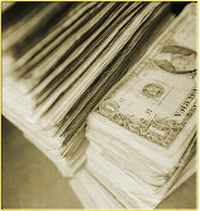Parmalat SpA seeks punitive damages from Citigroup Inc
Parmalat SpA (BIT: PLT), an Italian dairy and food corporation, has filed a lawsuit against Citigroup Inc. to seek $2.2 billion in damages for contribution to the company’s bankruptcy in 2003.

Earlier Parmalat demanded $10 billion from Citigroup, but Superior Court turned down its allegations and claim for punitive damages last month.
The company had to abandon claims of fraud, racketeering and unjust enrichment and stick to claims of aid and abetted breach of fiduciary duties by corrupt Parmalat insiders who stole from the company.
Jury selection will be made later this week. The case is expected to last 8-10 weeks.
At the end of 2003, one of the biggest corporate scandals in history came to light as a 14 billion (EUR) hole was discovered in Parmalat's accounting records.
It was in 1997 that Parmalat jumped into the world financial markets in a big way, financing several international acquisitions, especially in the Western Hemisphere, with debt. But by 2001, many of the new divisions were producing losses, and the company financing shifted largely to the use of derivatives, apparently at least in part with the intention of hiding the extent of its losses and debt.
In February 2003, chief financial officer Fausto Tonna unexpectedly announced a new 500 (EUR) million bond issue. This came as a surprise both to the markets and to the CEO, Tanzi. Tanzi fired Tonna and replaced him as CFO with Alberto Ferraris.
The crisis became public in November when questions were raised about transactions with mutual fund Epicurum, another Cayman-based company linked to Parmalat causing its stock to plummet. Ferraris resigned less than a week later and was replaced by Del Soldato.
In December, Del Soldato resigned, unable to get cash from Epicurum fund, needed to pay debts and make bond payments. Enrico Bondi was called in to help the company. Tanzi himself resigned as chairman and CEO. Parmalat's bank, Bank of America, then released a document showing 3.95 billion (EUR) in Bonlat's bank account as a forgery. Prime Minister Silvio Berlusconi initiated a fraud investigation and appointed Bondi to administer the company's rescue.
Calisto Tanzi, once a symbol of unlimited success, was detained hours after the firm was declared officially insolvent and eventually charged with financial fraud and money laundering. Italians were shocked that such a vast and established empire could crumble so quickly. Among the questionable accounting practices used by Parmalat: it sold itself credit-linked notes, in effect placing a bet on its own credit worthiness in order to conjure up an asset out of thin air.
After his arrest, Tanzi reportedly admitted during questioning at Milan 's San Vittore prison, that he diverted funds from Parmalatinto Parmatour and elsewhere. The family football and tourism enterprises were financial disasters; as well as Tanzi's attempt to rival Berlusconi by buying Odeon TV, only to sell it at a loss of about 45 million (EUR).
Subscribe to Pravda.Ru Telegram channel, Facebook, RSS!


